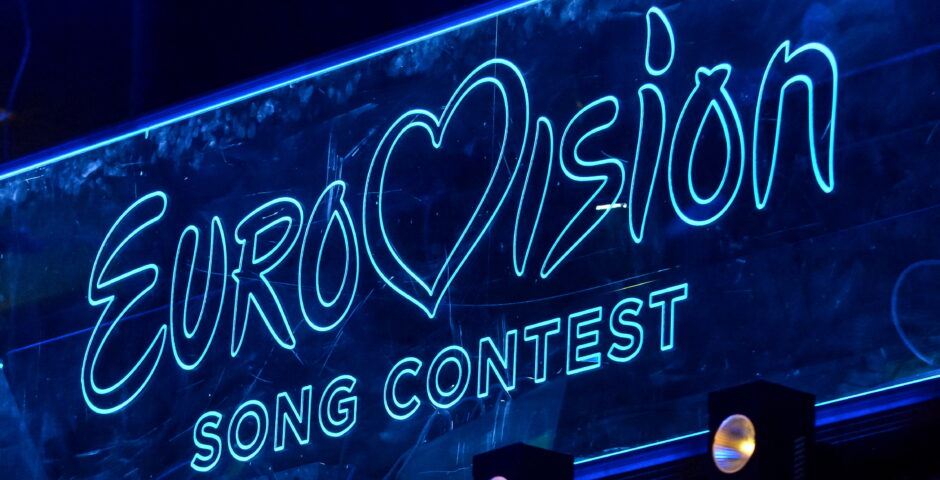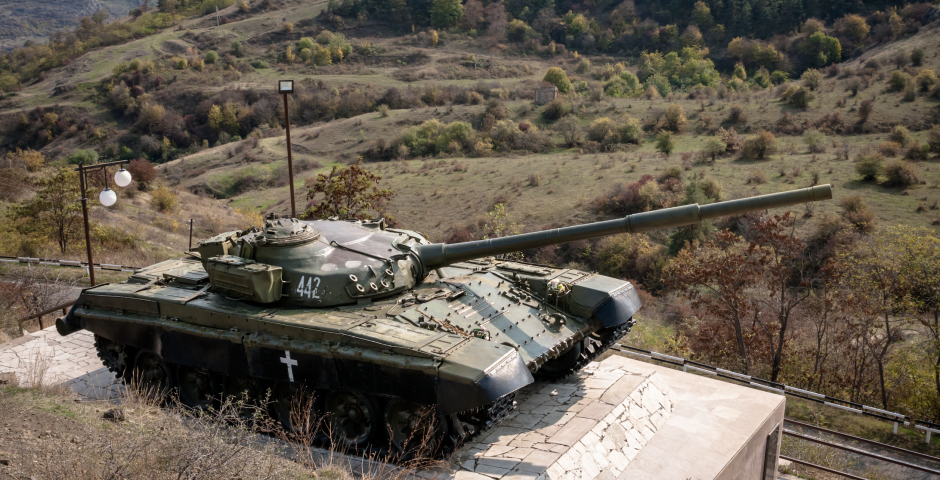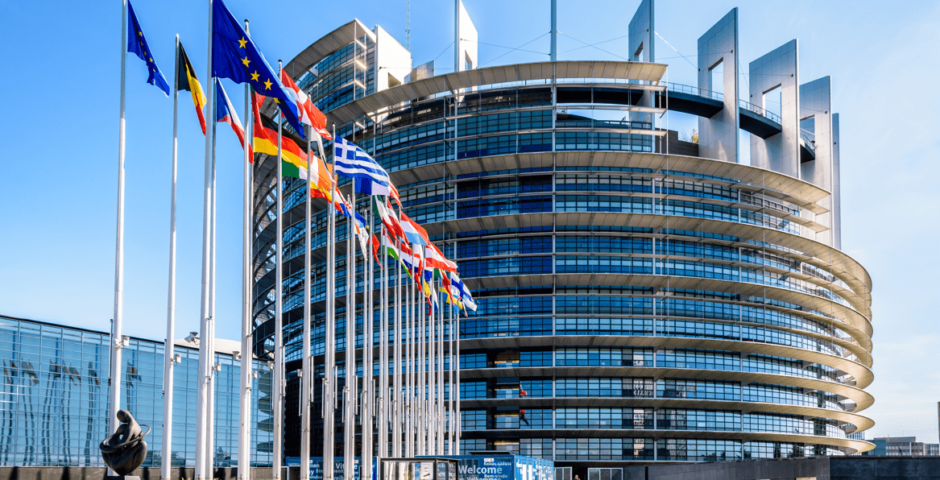The Eurovision Song Contest: An event to bring Europe Together

Europe on centre stage
When we think about events that put Europe on centre stage, people tend to think of the Champions League or the Euros where clubs and countries compete for the ultimate prize – to be named champions of European football. In the 1950s, the same decade that these competitions debuted, the various European national broadcasting networks came together to form the European Broadcasting Union (EBU). The most significant event created by the EBU, the Eurovision Song Contest, has brought Europe together year after year. Today, it is broadcast across the world and the number of participating countries has increased from seven to 39. This article aims to give a brief overview of the competition and identify several highlights that make Eurovision so unique.
Original format
Eurovision started as a small pan-European event to bring music to people through radio waves. They gathered at a venue in Switzerland to perform music to those who had access to a radio, for a night of acoustic entertainment. Unlike the show today, it had no public televoting, nor did it attract widespread viewership outside of Europe. The seven countries that participated were represented by two acts with songs of a maximum length of 210 seconds, a rule that has now been changed to three minutes. Ukraine’s 2017 representatives took this rule to the extreme when they performed their act with a countdown clock of three minutes.
Originally, as was the rule between 1955-1973 & 1976-1999, participants were required to perform in their national language. In 1968, during the period of Franco’s reign, Spain replaced the individual who would sing the song La La La, originally in Catalan, for one who would sing it in Spanish. While no clear reason has been given for the rule’s abolishment, there has been an increase of acts performed partly or completely in English. The most ambitious multilingual performance came in 2019 with Denmark’s entry Love Is Forever, which was performed with sections in English, French, Danish and German. Clearly, this multilingual approach was enough for a place in the Grand Final.
No Political Statements
At Eurovision, expressing a political opinion or message could result in hefty fines and dismissal from participation. This non-political value is at the heart of the EBU. Under the rules of the competition, the broadcaster, the artist or the lyrics of the song cannot support a political position. This year’s Belarusian representative has been unable to take part for failing, on two occasions, to respect this rule. This is not the first time the EBU has had to deal with this. When Portugal and Spain were under dictatorships, the EBU did not sanction them because, while they may be undemocratic regimes, neither the performers nor the broadcasters broke the rules.
Today’s format
The 21st century Eurovision competition has brought even more competitors into the mix, the most unusual being Australia. While not a European country, or in its immediate vicinity, the Australian broadcaster has been part of the EBU for many years, and Eurovision seems to be well-watched by the Aussies. If they win the competition they are likely to pass the privilege of hosting to a European country. This has happened in the past when Monaco won and, after being unable to find a suitable venue, asked the UK to step in and host it.
Since 1975, Eurovision’s current voting procedure has been used to decide the winner. After each participating country announces its national votes, it falls to the hosts of the event to announce the crucial public vote. In both the national voting procedure, as well as the public vote, countries cannot award points to themselves, they must be awarded to other competing states. As has been seen on countless nights, such as 2019 Eurovision, the public vote has always produced upsets and glory for acts that are neck and neck.
Memorable winners & moments
Walk into any karaoke bar and sure enough, ABBA’s Waterloo will make an appearance. This 1974 Swedish entry took first place in Brighton and the band has gone on to have decades of success. Across the world, this song is known and sung by all, regardless of their mother tongue. Similar acts have followed ABBA’s footsteps of succeeding in the international circuit. For the 1988 Swiss entry, a young Canadian-born singer won the competition with Ne partez pas sans moi. That entry was Céline Dion. A similar tactic of using a well-known talent has been used in this year’s Eurovision, with San Marino’s entry featuring the American talent Flo Rida and Finland’s 2019 entry featuring the well-known Finnish DJ Darude.
An almost integral part to Eurovision is its attraction to providing a place for strange and offbeat acts to compete against a more traditional pool of acts. In recent history, the majority of entries that have won the song contest normally land into the pop category of music. However, every so often, one entry stands with a non-traditional performance. The best example of a non-pop winner is Finland’s Lordi who won with a hard rock number. Similar acts have followed such as in 2019 when Iceland sent a self-described ‘anti-capitalist BDSM band’, coming 12th, and Ukraine sent a drag group, coming 2nd.
To finish, I have compiled a list of the key performances of Eurovision, each making their own stamp on the competition.
The 2007 Ukraine entry became a fan favourite because, while it did not win, it showcases how a drag group can make it in Eurovision. It is a clear example of how a ridiculous dance and outrageous drag can culminate into a somewhat cult favourite.
The 2010 Moldovan entry is less about the song and focuses more on the saxophone solo. Type ‘epic sax guy’ into YouTube and the first link has accumulated over 78 million views. He was so popular that he made a reappearance in the 2017 Moldovan entry. Using a bold instrument has been used on multiple occasions, but Norway’s winner, Alexander Rybak’s violin skills earned him the highest score in Eurovision history with his song Fairytale.
In 2012, the Russian grandmas took the stage to prove that contestants of all ages are welcome to the contest. While their performance involved less dancing and stunts, the grandmas’ performance was enjoyed by viewers of all ages.
2015 Sweden uses technology to steal the show. Måns Zelmerlöw took Eurovision to a new level with his visually impressive stage effects. Similar acts have adopted this approach to incorporate visuals into their performance, such as Russia’s Sergey Lazarev, but have been unable to achieve the same success as his predecessor.
Following Måns’ success, Sweden hosted the show the following year and produced one of the best, non-participant, Eurovision performances. The host’s entertaining interval act perfectly sums up the key events of Eurovision up to then, incorporating all the past competitors into the mix. While the acts involved in this nostalgic performance may have competed against one another, they all came together in the name of celebrating Europe and the event that gives them a platform to perform.
Eurovision 2021
The Eurovision Song Contest brings artists from across Europe together for a week of music. This year, this weird and wonderful show will take place in the Netherlands for the first time since 1980. Like most events in 2020, the show was cancelled for the first time in its history. As the world comes out of the pandemic, this joyful occasion is a welcomed opportunity to celebrate the end of this troubling time. This article will be followed up by looking at the 2021 Eurovision contest and the possible acts to look out for, if they reach the Grand Final on 22 May.
Finn McCartney has previously obtained a degree in European Studies from the University of Amsterdam, majoring in European Economics. Currently he is studying the European Policy MA at the UvA.
Featured image: Shutterstock




